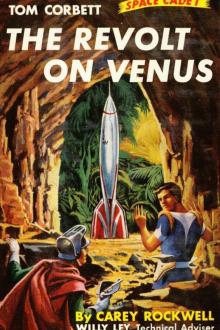Hypatia — or New Foes with an Old Face by Charles Kingsley (e book reader TXT) 📗

- Author: Charles Kingsley
Book online «Hypatia — or New Foes with an Old Face by Charles Kingsley (e book reader TXT) 📗». Author Charles Kingsley
‘He must begin at the beginning,’ thought she to herself. ‘Mathematics and the Parmenides are enough for him as yet. Without a training in the liberal sciences be cannot gain a faith worthy of those gods to whom some day I shall present him; and I should find his Christian ignorance and fanaticism transferred, whole and rude, to the service of those gods whose shrine is unapproachable save to the spiritual man, who has passed through the successive vestibules of science and philosophy.’
But soon, attracted herself, as much as wishing to attract him, she employed him in copying manuscripts for her own use. She sent back his themes and declamations, corrected with her own hand; and Philammon laid them by in his little garret at Eudaimon’s house as precious badges of honour, after exhibiting them to the reverential and envious gaze of the little porter. So he toiled on, early and late, counting himself well paid for a week’s intense exertion by a single smile or word of approbation, and went home to pour out his soul to his host on the one inexhaustible theme which they had in common—Hypatia and her perfections. He would have raved often enough on the same subject to his fellow-pupils, but he shrank not only from their artificial city manners, but also from their morality, for suspecting which he saw but too good cause. He longed to go out into the streets, to proclaim to the whole world the treasure which he had found, and call on all to come and share it with him. For there was no jealousy in that pure love of his. Could he have seen her lavishing on thousands far greater favours than she had conferred on him, he would have rejoiced in the thought that there were so many more blest beings upon earth, and have loved them all and every one as brothers, for having deserved her notice. Her very beauty, when his first flush of wonder was past, he ceased to mention—ceased even to think of it. Of course she must be beautiful. It was her right; the natural complement of her other graces but it was to him only what the mother’s smile is to the infant, the sunlight to the skylark, the mountain-breeze to the hunter—an inspiring element, on which he fed unconsciously. Only when he doubted for a moment some especially startling or fanciful assertion, did he become really aware of the great loveliness of her who made it; and then his heart silenced his judgment with the thought—Could any but true words come out of those perfect lips?—any but royal thoughts take shape within that queenly head?.... Poor fool! Yet was it not natural enough?
Then, gradually, as she passed the boy, poring over his book, in some alcove of the Museum Gardens, she would invite him by a glance to join the knot of loungers and questioners who dangled about her and her father, and fancied themselves to be reproducing the days of the Athenian sages amid the groves of another Academus. Sometimes, even, she had beckoned him to her side as she sat in some retired arbour, attended only by her father; and there some passing observation, earnest and personal, however lofty and measured, made him aware, as it was intended to do, that she had a deeper interest in him, a livelier sympathy for him, than for the many; that he was in her eyes not merely a pupil to be instructed, but a soul whom she desired to educate. And those delicious gleams of sunlight grew more frequent and more protracted; for by each she satisfied herself more and more that she had not mistaken either his powers or his susceptibilities: and in each, whether in public or private, Philammon seemed to bear himself more worthily. For over and above the natural ease and dignity which accompanies physical beauty, and the modesty, self-restraint, and deep earnestness which he had acquired under the discipline of the Laura, his Greek character was developing itself in all its quickness, subtlety, and versatility, until he seemed to Hypatia some young Titan, by the side of the flippant, hasty, and insincere talkers who made up her chosen circle.
But man can no more live upon Platonic love than on the more prolific species of that common ailment; and for the first month Philammon would have gone hungry to his couch full many a night, to lie awake from baser causes than philosophic meditation, had it not been for his magnanimous host, who never lost heart for a moment, either about himself, or any other human being. As for Philammon’s going out with him to earn his bread, he would not hear of it. Did he suppose that he could meet any of those monkish rascals in the street, without being knocked down and carried off by main force? And besides there was a sort of impiety in allowing so hopeful a student to neglect the ‘Divine Ineffable’ in order to supply the base necessities of the teeth. So he should pay no rent for his lodgings—positively none; and as for eatables—why, he must himself work a little harder in order to cater for both. Had not all his neighbours their litters of children to provide for, while he, thanks to the immortals, had been far too wise to burden the earth with animals who would add to the ugliness of their father the Tartarean hue of their mother? And after all, Philammon could pay him back when he became a great sophist, and made money, as of course he would some day or other; and in the meantime, something might turn up—things were always turning up for those whom the gods favoured; and besides, he had fully ascertained that on the day on which he first met Philammon, the planets were favourable, the Mercury being in something or other, he forgot what, with Helios, which portended for Philammon, in his opinion, a similar career with that of the glorious and devout Emperor Julian.
Philammon winced somewhat at the hint; which seemed to have an ugly verisimilitude in it: but still, philosophy he must learn, and bread he must eat; so he submitted.
But one evening, a few days after he had been admitted as Theon’s pupil, he found, much to his astonishment, lying on the table in his garret, an undeniable glittering gold piece. He took it down to the porter the next morning, and begged him to discover the owner of the lost coin, and return it duly. But what was his surprise, when the little man, amid endless capers and gesticulations, informed him with an air of mystery, that it was anything but lost; that his arrears of rent had been paid for him; and that by the bounty of the upper powers, a fresh piece of coin would be forthcoming every month! In vain Philammon demanded to know who was his benefactor. Eudaimon resolutely kept the secret and imprecated a whole Tartarus of unnecessary curses on his wife if she allowed her female garrulity—though the poor creature seemed never to open her lips from morning till night—to betray so great a mystery.
Who was the unknown friend? There was but one person who could have done it.... And yet he dared not—the thought was too delightful—think it was she. It must have been her father. The old man had asked him more than once about the state of his purse. True, he had always returned evasive answers; but the kind old man must have divined the truth. Ought he not—must he not—go and thank him? No; perhaps it was more courteous to say nothing. If he—she—for of course





Comments (0)